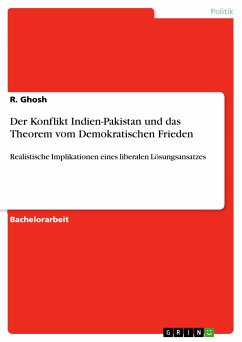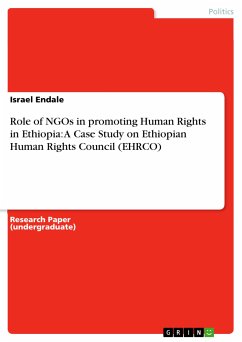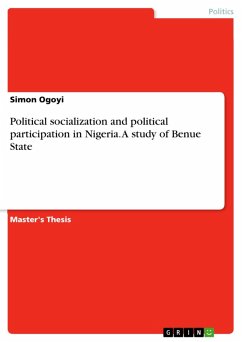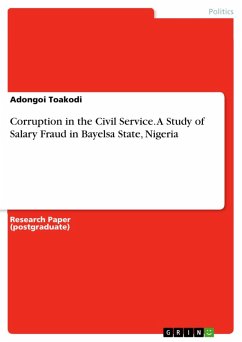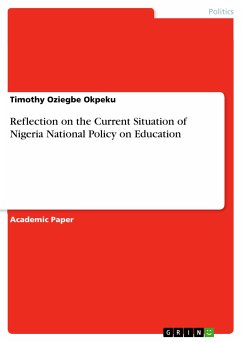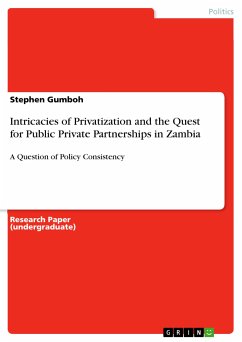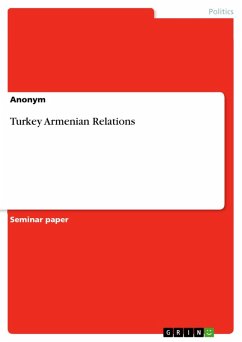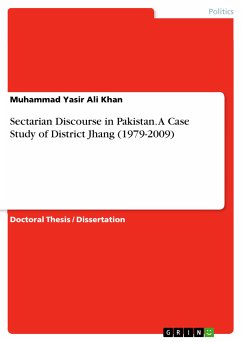
Sectarian Discourse in Pakistan. A Case Study of District Jhang (1979-2009) (eBook, PDF)
Versandkostenfrei!
Sofort per Download lieferbar
Statt: 52,95 €**
39,99 €
inkl. MwSt. und vom Verlag festgesetzt.
**Preis der gedruckten Ausgabe (Broschiertes Buch)
Alle Infos zum eBook verschenkenWeitere Ausgaben:

PAYBACK Punkte
0 °P sammeln!
Doctoral Thesis / Dissertation from the year 2017 in the subject Politics - Region: Near East, Near Orient, grade: Cum laude, University of Erfurt (Department of Religious Studies), language: English, abstract: This study on the sectarian discourse in Jhang tries to understand the phenomenon by employing the cultural tools of inquiry. It seeks to investigate sectarianism by exploring those sectarian performances, which, inherently, are culture specific. These performances are the parts of discourse. Every discursive position in the shape of a particular viewpoint involves some practices and pe...
Doctoral Thesis / Dissertation from the year 2017 in the subject Politics - Region: Near East, Near Orient, grade: Cum laude, University of Erfurt (Department of Religious Studies), language: English, abstract: This study on the sectarian discourse in Jhang tries to understand the phenomenon by employing the cultural tools of inquiry. It seeks to investigate sectarianism by exploring those sectarian performances, which, inherently, are culture specific. These performances are the parts of discourse. Every discursive position in the shape of a particular viewpoint involves some practices and performances. These performances, according to the newly emerging theories of cultural performance, seek credibility from the audience to achieve a dominant position in a discourse. This credibility is a relationship between the performance and the audience in a particular culture. It is a subjective relationship which varies with the changing dynamics of time and space. Similar discursive formations have differences of structural building in different sets of cultural conditions. The hegemonic status of a particular viewpoint in a particular discourse depends upon the intensity of relationship between the act and the audience in the performances attached with that viewpoint. This relationship is relative, and this relativity keeps the discursivity alive in a discourse. This relativity rather than the absoluteness keeps the struggle alive and reduces the level of inertia in a society. Sectarian performances, in this study, include textual, oral and customary performances. It also includes the concept of cultural script for the examination of cultural sectarian performances. This categorization yearns to explore sectarian texts, sectarian oral traditions and some customary practices. This scheme of research will help to find the cultural roots of sectarianism and will be equally significant for the overall understanding of the issue, which till now, is understood dominantly as religious and to some partially socio-political. Pakistani society has been the victim of shia-sunni sectarian violence over the last four decades which has engulfed the peace of the country by appearing in various ways. Its appearance in both violent and non-violent ways, has affected almost the whole country but Jhang, a district of Punjab province, stands prominent. Sectarianism in Jhang attracted the attention of journalistic and academic analysis. The works of Khalid Ahmad, Tahir Kamran, and Mariam Abou Zahab cover the different aspects of the issue. Most of the works discuss historical, political and socio-economic aspects of sectarianism.
Dieser Download kann aus rechtlichen Gründen nur mit Rechnungsadresse in A, B, BG, CY, CZ, D, DK, EW, E, FIN, F, GR, HR, H, IRL, I, LT, L, LR, M, NL, PL, P, R, S, SLO, SK ausgeliefert werden.






